Quantum Physics
-
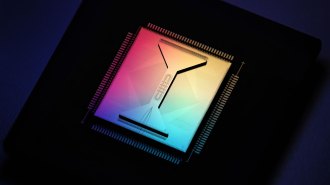 Quantum Physics
Quantum PhysicsA quantum computer corrected its own errors, improving its calculations
The corrected calculation had an error rate about a tenth of one done without quantum error correction.
-
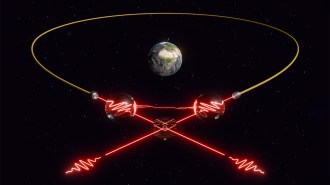 Quantum Physics
Quantum PhysicsPhysicists measured Earth’s rotation using quantum entanglement
The experiment is a step toward testing how quantum physics interfaces with gravity.
-
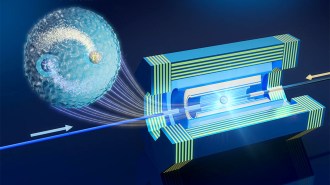 Particle Physics
Particle PhysicsScientists propose a hunt for never-before-seen ‘tauonium’ atoms
Made of heavy relatives of the electron, the exotic atoms could be used to test the theory of quantum electrodynamics.
-
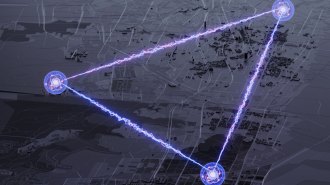 Quantum Physics
Quantum PhysicsTwo real-world tests of quantum memories bring a quantum internet closer to reality
Scientists successfully entangled quantum memories linked by telecommunications fibers across two different urban environments.
-
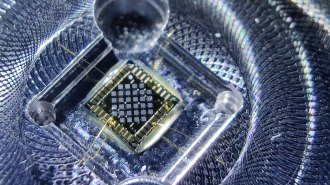 Particle Physics
Particle PhysicsThe neutrino’s quantum fuzziness is beginning to come into focus
An experiment studying the neutrino’s “wave packet” sets a limit on the uncertainty of the subatomic particle’s position.
-
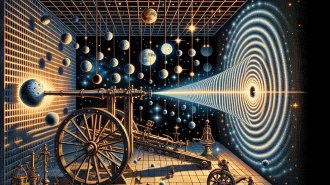 Quantum Physics
Quantum PhysicsA maverick physicist is building a case for scrapping quantum gravity
To merge quantum physics and general relativity, physicists aim to quantize gravity. But what if gravity isn’t quantum at all?
-
 Chemistry
ChemistryThe development of quantum dots wins the 2023 Nobel prize in chemistry
Moungi Bawendi, Louis Brus and Alexei Ekimov split the prize for their work in creating nanoparticles whose properties depend on their size.
By Carolyn Gramling and Tina Hesman Saey -
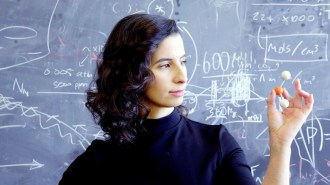 Space
SpaceClara Sousa-Silva seeks molecular signatures of life in alien atmospheres
Quantum astrochemist Clara Sousa-Silva studies how molecules in space interact with light, offering clues to what distant objects are made of.
By Elise Cutts -
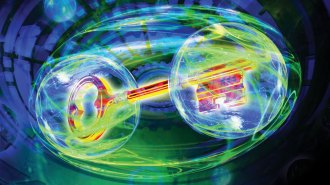 Quantum Physics
Quantum PhysicsQuantum computers could break the internet. Here’s how to save it
Today's encryption schemes will be vulnerable to future quantum computers, but new algorithms and a quantum internet could help.
-
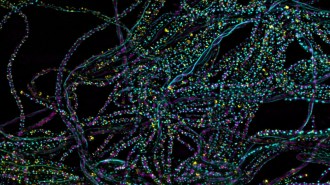 Chemistry
ChemistryOne photon is all it takes to kick off photosynthesis
A single particle of light is the spark that begins the process of turning light to chemical energy in photosynthetic bacteria, a new study confirms.
-
 Quantum Physics
Quantum PhysicsQuantum computers braided ‘anyons,’ long-sought quasiparticles with memory
Particle-like quantum states called non-abelian anyons remember being swapped and could be useful for protecting information in quantum computers.
-
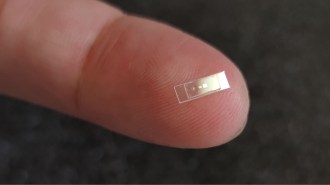 Quantum Physics
Quantum PhysicsA sapphire Schrödinger’s cat shows that quantum effects can scale up
The atoms in a piece of sapphire oscillate in two directions at once, a mimic of the hypothetically dead-and-alive feline.